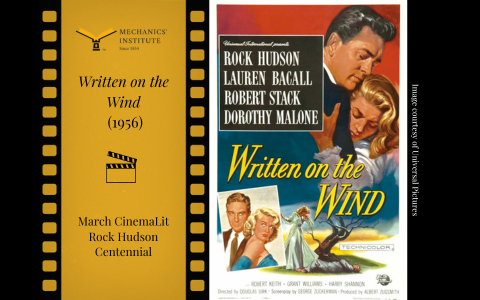
This salon will be held on Zoom. Watch One Drop Rule on Kanopy and then join us for the discussion!
February 18 – One Drop Rule (2001) 50 min directed by James Banks
 The one-drop rule, prominent in twentieth-century United States, asserts any person with even one Black ancestor is legally and socially classified as Black. That is the jumping off point for this provocative documentary. Interviewees discuss the consequences of skin tone and color differences not just in the larger society, but within Black communities as well. Attitudes about the spectrum of light to dark skinned African Americans cause rifts and ripples in virtually all aspects of social life. Subtle and obvious forms of discrimination in relationships, marriage, parenthood, employment, social class, media, and the beauty industry are discussed with honesty, humor, and more than a little frustration and anger. (Image used with permission of Kanopy Inc.)
The one-drop rule, prominent in twentieth-century United States, asserts any person with even one Black ancestor is legally and socially classified as Black. That is the jumping off point for this provocative documentary. Interviewees discuss the consequences of skin tone and color differences not just in the larger society, but within Black communities as well. Attitudes about the spectrum of light to dark skinned African Americans cause rifts and ripples in virtually all aspects of social life. Subtle and obvious forms of discrimination in relationships, marriage, parenthood, employment, social class, media, and the beauty industry are discussed with honesty, humor, and more than a little frustration and anger. (Image used with permission of Kanopy Inc.)
CinemaLit / February 2022 – Black Lives on Film
Black History Month at CinemaLit highlights four films reflecting on the African American experience. Two films are documentaries: 2020's Driving While Black: Race, Space and Mobility in America and 2001's One Drop Rule. The feature film Killer of Sheep began as the 1970s master's project of UCLA film student Charles Burnett. It has since gone on to international acclaim as a neorealist masterpiece. Luce from 2019 is a tautly constructed mainstream film taking on tough issues of stereotyping, education, and trauma.
 Matthew Kennedy, CinemaLit’s curator, has written biographies of Marie Dressler, Joan Blondell, and Edmund Goulding. His book Roadshow! The Fall of Film Musicals in the 1960s, was the basis of a film series on Turner Classic Movies.
Matthew Kennedy, CinemaLit’s curator, has written biographies of Marie Dressler, Joan Blondell, and Edmund Goulding. His book Roadshow! The Fall of Film Musicals in the 1960s, was the basis of a film series on Turner Classic Movies.
“I don't have a favorite film,” Matthew says. "I find that my relationships to films, actors, genres, and directors change as I change over the years. Some don't hold up. Some look more profound, as though I've caught up with their artistry. I feel that way about Garbo, Cary Grant, director John Cassavetes, and others."
“Classic films have historical context, something only time can provide,” Matt observes. “They become these great cultural artifacts, so revealing of tastes, attitudes, and assumptions.”
Programming in "Civil Rights, Artistic Diversity, Historical Reckoning: Exploring the Film, Literature, and Lives of Marginalized Communities" has been made possible in part by a major grant from the National Endowment for the Humanities: Democracy demands wisdom. Any views, findings, conclusions, or recommendations expressed in this program do not necessarily represent those of the National Endowment for the Humanities.

MI Members Free
Public sliding scale Free to $10
Register with Eventbrite below.
CinemaLit Films





